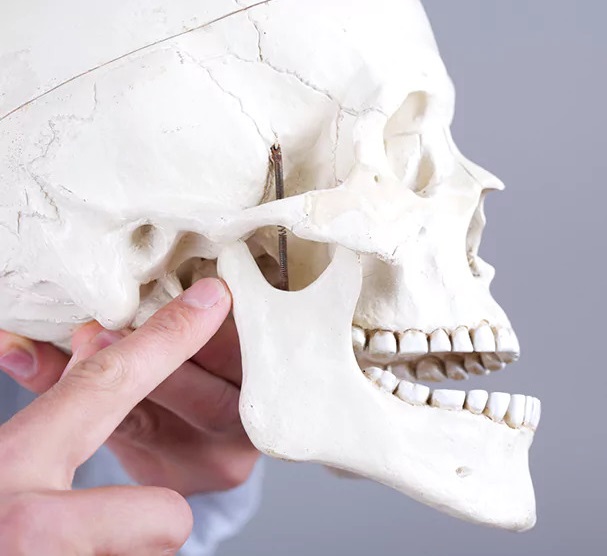TMJ Arthroscopy: A Complete Guide by Expert Maxillofacial Surgeon

Strong 8k brings an ultra-HD IPTV experience to your living room and your pocket.
Temporomandibular joint (TMJ) disorders are a group of conditions that affect the jaw joint and the muscles that control it. Symptoms of TMJ disorders can include pain in the jaw joint and surrounding muscles, headaches, earaches, difficulty chewing, and a popping or clicking sound in the jaw.
one of India's foremost specialists in TMJ Arthroscopy surgery, has improved the lives of more than 6,000 patients with temporomandibular joint abnormalities (TMJ disorders). As one of just two maxillofacial surgeons in India, Dr. Nehal Patel is a pioneer in the area due to his proficiency in TMJ arthroscopy, a minimally invasive surgery. This thorough guide examines the complexities of TMJ arthroscopic surgery and its importance in the management of illnesses affecting the temporomandibular joint.
What is TMJ Arthroscopy?
TMJ arthroscopy is a minimally invasive surgical procedure that can be used to diagnose and treat TMJ disorders. During TMJ arthroscopy, a small incision is made near the jaw joint, and a thin tube with a camera attached (arthroscope) is inserted into the joint. This allows the surgeon to see inside the joint and diagnose the problem. In some cases, the surgeon can also use the arthroscope to perform surgery to repair damage to the joint.
Who Needs TMJ Arthroscopy Surgery?
TMJ arthroscopy is not right for everyone. It is typically considered after conservative treatments, such as physical therapy, medication, and lifestyle changes, have not been successful. Here are some of the conditions that TMJ arthroscopy may be used to treat:
• Torn or damaged cartilage in the TMJ
• Adhesions (scar tissue) in the TMJ
• Disc displacement (when the disc that cushions the jaw joint moves out of place)
• Repositioning of the jaw joint
• Chronic jaw pain and dysfunction
• Limited jaw movement or locking
• Internal derangement of the TMJ
• Persistent clicking or popping sounds
Key Symptoms of Maxillofacial TMJ Disorders
Maxillofacial conditions refer to a wide range of issues that affect the jaw and face. Some of the common symptoms of maxillofacial conditions include:
• Pain in the jaw, face, or neck
• Difficulty chewing or swallowing
• Facial swelling or asymmetry
• Loose teeth
• Numbness or tingling in the face
• Jaw joint problems, such as TMJ disorders
• Birth defects of the jaw or face
• Injuries to the jaw or face
If you are experiencing any of these symptoms, it is important to see a maxillofacial surgeon for diagnosis and treatment.
The Surgical Procedure: What to Expect
TMJ arthroscopy is typically performed on an outpatient basis, which means that you will be able to go home the same day as the surgery. The surgery is usually performed under general anesthesia, so you will be asleep and pain-free during the procedure.
During TMJ arthroscopy surgery, the oral and maxillofacial surgeon follows these key steps:
1. The TMJ Specialist will make a small incision near the jaw joint.
2. The arthroscope will be inserted into the joint.
3. The surgeon will use the arthroscope to examine the joint and diagnose the problem.
4. If necessary, the surgeon will use small surgical instruments inserted through other tiny incisions to perform surgery to repair damage to the joint.
5. The incisions will be closed with stitches.
Who Performs TMJ Surgery?
TMJ surgery should only be performed by a qualified oral and maxillofacial surgeon (OMS). An OMS is a dentist who has completed additional training in surgery of the face, mouth, and jaws. Dr. Nehal Patel is a highly skilled and experienced OMS who is a pioneer of TMJ arthroscopy in India.
What Happens After TMJ Arthroscopy Surgery?
After TMJ arthroscopy surgery, you will be taken to a recovery room where you will be monitored for a short time. You may experience some pain and swelling in the jaw after surgery. Your doctor will prescribe medication to help manage the pain.
You will also be given specific instructions on how to care for your incision and jaw joint after surgery. These instructions may include:
• Applying ice packs to the jaw to reduce swelling
• Taking pain medication as prescribed by your doctor
• Eating a soft diet
• Avoiding strenuous activity
• Following a physical therapy regimen
It is important to follow your doctor's instructions carefully to ensure a smooth recovery.
Success Rates and Outcomes
TMJ arthroscopy has shown impressive success rates, with studies indicating:
• 80-90% improvement in jaw function
• Significant reduction in pain levels
• Enhanced quality of life
• Minimal scarring
• Faster recovery compared to open surgery
Recovery Timeline
Most patients experience a relatively quick recovery:
• Days 1-3: Rest and minimal jaw movement
• Days 4-7: Gradual return to soft foods
• Weeks 2-3: Progressive return to normal activities
• Weeks 4-6: Full recovery for most patients
Why Choose nuFace Hospital for TMJ Arthroscopy?
When seeking advanced treatment for TMJ disorders, choosing nuFace Maxillofacial Hospital provides access to unparalleled expertise. Led by Dr. Nehal Patel, a pioneer in TMJ Arthroscopy in India, the hospital offers state-of-the-art facilities and a patient-centric approach. Dr.Nehal Patel's extensive experience and meticulous surgical techniques ensure optimal outcomes, while the focus on personalized care guarantees individual attention and support throughout the recovery journey. By selecting nuFace Hospital, patients can confidently entrust their TMJ health to a team dedicated to delivering the highest standards of care and achieving lasting relief from debilitating symptoms.
Conclusion
TMJ arthroscopy surgery offers a minimally invasive and effective treatment option for patients suffering from debilitating TMJ disorders. Under the expert guidance of Dr. Nehal Patel, nuFace Hospital provides state-of-the-art care, ensuring optimal outcomes and a smooth recovery journey. While this blog provides a general overview, it is crucial to consult with a qualified oral and maxillofacial surgeon like Dr. Patel to determine if TMJ arthroscopy is the right treatment for your specific condition. By seeking professional guidance and adhering to post-operative instructions, patients can significantly improve their quality of life and regain function in their jaw joint.
Get in touch with Dr. Nehal Patel at nuFace Maxillofacial & Dental Hospital, Surat, for expert consultations or more information on TMJ arthroscopy procedures.
Note: IndiBlogHub features both user-submitted and editorial content. We do not verify third-party contributions. Read our Disclaimer and Privacy Policyfor details.







